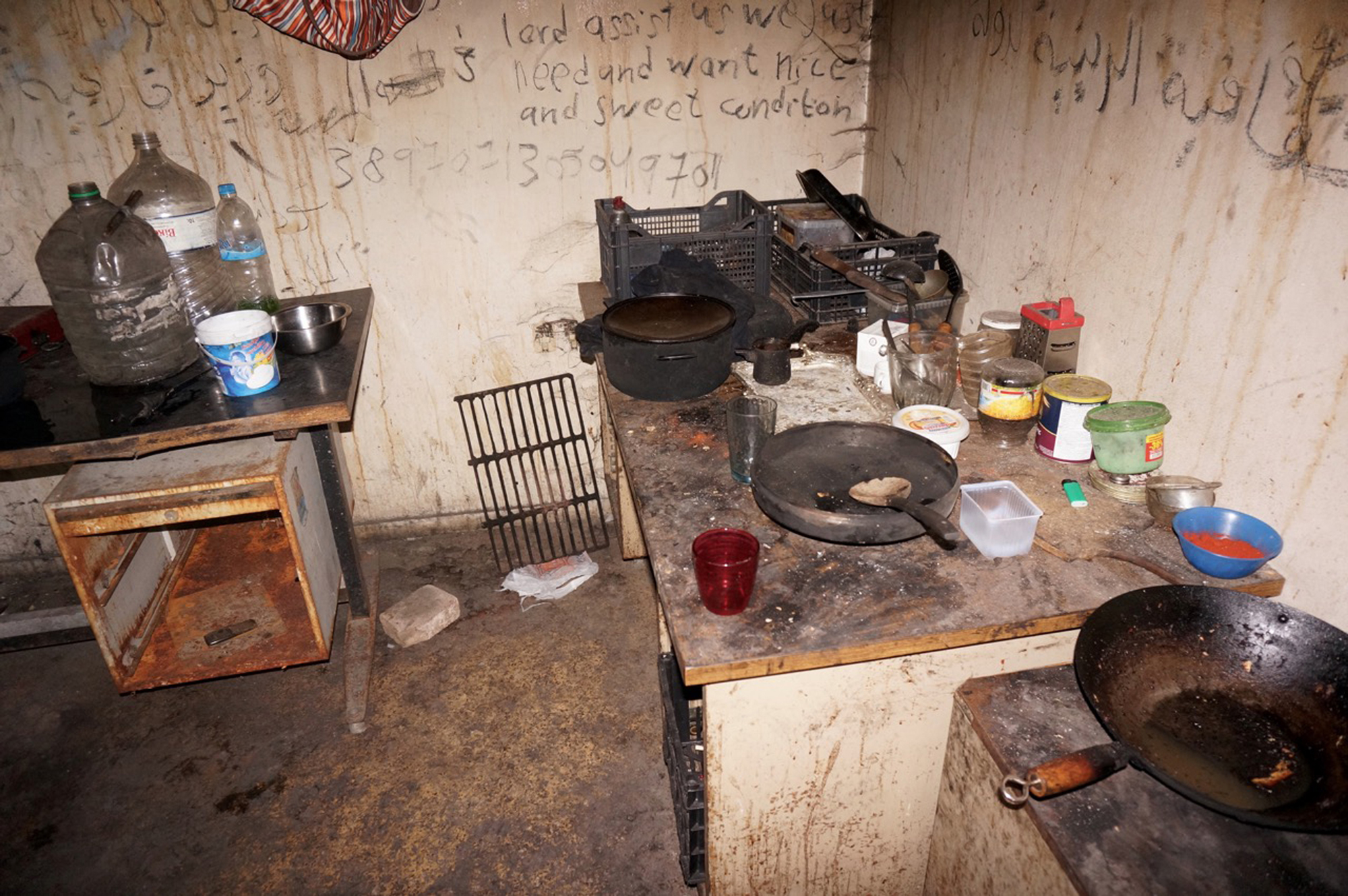Insulation and paper clung to the rafters of the former factory like clothes drying on a line. On the concrete floor, shards of glass were mixed with piles of trash. Old desks held overused pots and gritty pans while filing cabinets stored clothes. Long-forgotten cisterns, a plastic bucket and a rope provided somewhat fresh water.
Here, just feet from a lively port, more than one hundred Sudanese refugees live in abject poverty. Next door, another abandoned facility is home to Afghan migrants.

Patras, Greece, is sometimes called the Gateway to Western Europe. But for hundreds of refugees already here, it’s a nightmare. They live in an intermediate state — a purgatory with no clear means of escape or end. They had hoped to travel to Italy by boat or ferry, but catching a ride underneath a semi is their current option, and next to impossible. They are usually caught by police and told to go back to where they live.
“We don’t have a place to live,” is their usual reply, they said.
They are ignored and neglected in Europe.
“We didn’t know Europe was like this,” Ibrahim* said. He motioned to a makeshift bed on the floor: “Look where we sleep!”
His friend Abed* agreed. “If I knew it was like this, I wouldn’t come,” he said.
“Sometimes we try to go inside the city to look for a job, but people run away from us because of fear,” Abed said. “We don’t know why. We don’t know how we stay here.”
All of them said they hope to find better opportunities elsewhere in Europe. If that’s not an option, many of them simply want to return home — to Khartoum or to the Darfur refugee camps.
For others seeking to enter the continent, they have a message: “We tell them that nobody should try to come to Europe,” Ibrahim said. “It’s bad. It’s too bad.”
But many aren’t getting Ibrahim’s message. Hundreds of thousands still see Europe as their refuge. According to the United Nations refugee agency, UNHCR, in the first half of 2014, the number of refugees seeking asylum in southern Europe was up 73 percent from the previous year. And numbers continue to grow, especially from the Middle East and Africa.
With the surge of refugees entering Europe’s borders, employment, government assistance and aid programs are struggling to keep up with increased demands.
“A sharp increase in refugees arriving on Greece’s Aegean islands is pushing an already faltering reception system to [the] breaking point,” reported Amnesty International on their website.
A Christian worker in West Africa, says refugees from his area “are willing to risk their lives on wandering boats hoping to reach Europe and find a job that will propel them forward. They often don’t hear the real stories about no work, living in a small room with 11 other guys and running from the cops every time they get near.”
The desire to get to Europe has become an idol for many African men, the worker said. “The younger generation considers Europe their only hope,” he noted. “These young men are looking for something to fill the void in their lives. They are looking for fulfillment in life; something more than what has been handed down from generation to generation. The appeal of success seems to be the obvious answer to them.”
But the worker hopes to help free people from their search for material gain in Europe by replacing their misguided hopes with the truth of the Gospel.
He said, “Matthew 6:24 is a passage of Scripture we share a lot with the young men in West Africa. When our minds are set on money, it quickly becomes our god. In the end it is not a god of love or one that is concerned with you. It is a god that leads to conflict, strife and murder. But Christ came to give life abundant, and it is given through His love, which [led Him to] give His life for all.”
Along with speaking the Gospel, the worker says believers must live in the power and the hope of the Gospel.
“Certainly the greatest asset we have in reaching them is Christ in us. The joy in life, the hope He provides is evident to these young men as we spend time with them. So the light in our lives is key,” he said.
*Name(s) changed for security
Excerpted from “Refugees seeking hope in Europe” by Keith Weston and Samantha Conners, Baptist Press, August 3, 2015.

